What’s Better For You: Butter or Margarine?
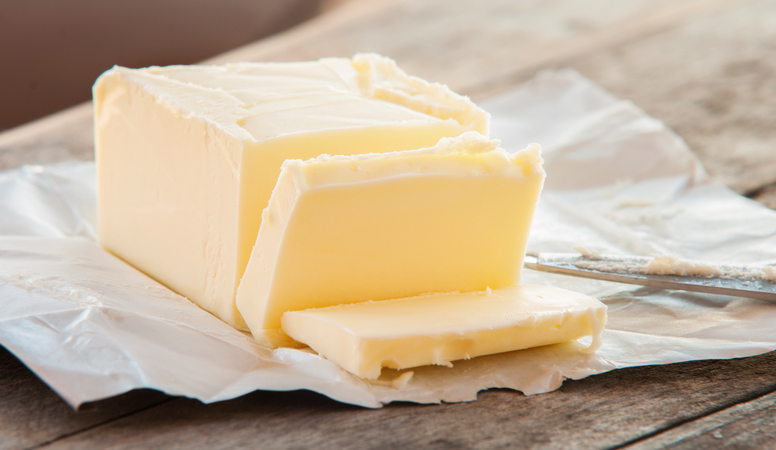
Butter or margarine: which one is better? If you don’t have time to read the whole post I will summarize it for you in one sentence. Butter. But I do hope you read on to find out why!
I grew up in a butter family. My mom hated margarine from the start and my grandma Fritzi insists on using it in everything. Margarine just has this weird faux-sweet taste to it that always made me cringe the same way chewing on a balloon does.
Margarine is simply not food. And despite the dogma swirling around about fats, butter is not bad for us, and in fact, has many healing and healthy properties to it.
What is Margarine?
Margarine was originally invented in France as a less expensive alternative to butter, so the flavour would be accessible to the masses. It’s interesting that the French, who are known to be food purists, would alter a whole food in such a way!
Almost all margarine begins as refined vegetable oil, which is chemically extracted at high temperature, causing the oil to oxidize and become rancid. This high heat also destroys the vitamin E in the oil, an important nutrient for hormonal balance and it’s needed to preserve the naturally occurring essential fatty acids.
To make margarine, the oil must be hardened. This is done by hydrogenation or bubbling hydrogen through the vegetable oil at high temperature – a process that transforms it to a solid at room temperature and making it more shelf-stable. When the carbon bonds of the oils are saturated with hydrogen, the product becomes a hydrogenated oil.
We’ve all seen the declaration on margarine tubs that it contains ‘polyunsaturated oil’. However, the processing or hydrogenation removes the flexibility of these oils and creates trans fatty acids, no matter what the label says. These man-made fatty acids that can worsen a number of conditions.
Health Risks of Trans Fats
Research indicates that trans fats are linked to:
- Obesity
- Allergies
- Diabetes
- An increased risk of cardiovascular disease
- An increased risk of colon cancer and possibly breast cancer
- An adverse effect on the brain and nervous system, disrupting cell membranes and changing the way neurons communicate
The final margarine product may also contain nickel, cadmium, lead and other very toxic heavy metals.
Laws have changed in North America over the last decade or so to make it mandatory for companies to label trans fats on products and reduce their trans fat content. The United States concluded that trans fats are not safe at all and banned them, something that hasn’t happened in Canada yet.
Since the early 2000s, the amount of trans fats in margarine or butter-like spreads has improved as companies lowered them, but it’s still not enough for me to recommend we eat these non-foods.
Effects of Margarine on Health
- Increases the risk coronary heart disease and overall risk of death.
- Margarine increases total cholesterol and LDL (this is considered the bad cholesterol) and lowers HDL cholesterol (this is considered the good cholesterol).
- Increases the risk of cancers.
- Can change the quality of breast milk.
- Decreases immune response and increases inflammation.
What is Butter?
Butter is made by churning the cream that rises to the top of the milk. The churning of this cream catalyzes a chemical reaction that causes the cream to harden slightly, giving it the buttery consistency. Butter is a good fat that contains a number of natural fatty acids and fat-soluble vitamins such as vitamin A, D, E and K. These are not found to any degree in margarine (unless synthetic versions are added). Unlike margarine, butter does not contain trans-fatty acids or toxic heavy metals.
Butter and Cholesterol
Butter’s effect on cholesterol was a smart little maneuver of propaganda by the anti-fat contingency. Only about 15% of our cholesterol level is affected directly by diet. Most cholesterol is manufactured within the body as it is the raw material for the adrenal stress hormones (cortisol and adrenaline) and the sex hormones (testosterone, estrogen and progesterone). The body often reacts to stress by producing more cholesterol in order to make more stress-fighting hormones. The observations of many natural health practitioners indicate that a balanced body chemistry is the key to normalizing cholesterol.
Butter and Saturated Fat
Emerging research allays long-held fears about saturated fat and our health. One review found that saturated fats had very little effect on stroke risk. High-fat diets have also been used therapeutically in a number of contexts, such as the ketogenic diet, to encourage many beneficial health effects.
Another meta-analysis of cohort studies and clinical trials concluded that butter consumption had little to no association with all-cause mortality, cardiovascular disease or diabetes, and the researchers felt their findings “do not support a need for major emphasis in dietary guidelines on either increasing or decreasing butter consumption.”
They also commented:
“Current dietary recommendations on butter and dairy fat are largely based upon predicted effects of specific individual nutrients (e.g., total saturated fat, calcium), rather than actual observed health effects. Our findings add to a growing body of evidence on long-term health effects of specific foods and types of fats. Conventional guidelines on dietary fats have not accounted for their diverse food sources nor the specific individual fatty acid profiles in such foods. Different foods represent complex matrices of nutrients, processing, and food structure, which together influence net health effects.”
In a nutshell, what they are saying is that food is much more than the sum of its parts. We can pick apart certain foods, but that doesn’t always tell us the whole story.
Nutrients Found in Butter
- Vitamin A, which is essential for a healthy immune system, growth and vision, and supports mucous membranes
- Vitamin D, which is crucial for bone health, immunity and hormone production.
- Antioxidants Vitamin E and selenium
- Calcium
- Butyric acid, a short-chain fat that reduces inflammation in the digestive tract, and can help with inflammatory bowel diseases such as Crohn’s disease, as well as irritable bowel syndrome and constipation.
- Dr. Weston Price identified a factor in butter that is essential for proper growth and development of the bone structure. He called it ‘activator X’ or ‘factor X’ – and what he was identifying is now thought to be Vitamin K2, which we know is crucial to bone health. Dr. Price was able to reverse severe tooth decay in children by feeding them one meal containing quality butter.
The Best Type of Butter to Consume
As with many other foods, quality matters. When consuming animal products, I recommend choosing organic which is better for our health, the health of animals and the health of the environment. Organic, grass-fed butter offers us more nutrients than conventional butter.
For example:
- Milk from grass-fed cows is higher in anti-inflammatory omega 3 fats.
- Organic milk has a lower ratio of omega 6 to omega 3s. While both fats are essential, higher ratios (in the neighbourhood of 16:1 or 20:1) promote inflammation.
- Organic milk is richer in conjugated linoleic acid (CLA), a fat that can lower the risk of heart disease, aid with weight loss and help modulate the immune system.
- In a 3-year US study of over a thousand milk samples, organic milk had higher omega 3s, higher CLA and a lower omega 6:3 ratio than conventional products.
What About Butter in Coffee?
You’ve probably heard of the butter coffee trend or ‘bulletproof coffee’. I break down the health benefits of this one here.
A Dairy-Free Butter Alternative with Health Benefits
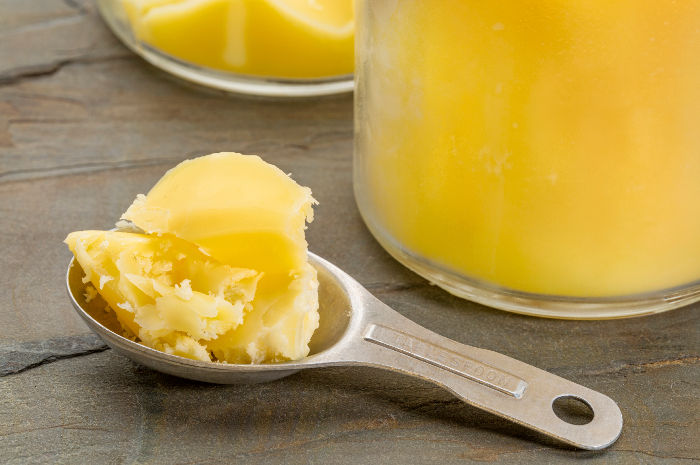
You may have noticed that I typically don’t advocate for dairy products on this site, in my recipes or during the culinary nutrition expert program. That’s because dairy, particularly conventional dairy, is associated with a number of negative health effects including poor digestion and absorption, inflammation and a decrease in bone health.
However, I am a huge advocate for organic ghee, which is made from butter that has all of the milk solids and proteins removed. This makes it a good dairy-free alternative that offers a number of health benefits, such as
- Its made pure medium and short chain fatty acids are easily digested and absorbed in our bodies to use immediately for energy
- The butyric acid helps to heal and restore intestinal cells and its Vitamin K2 are vital for dental health and fertility
- The conjugated linoleic acid (CLA) helps with fat burning and protects against carcinogens, artery plaque and diabetes
Learn how to make ghee at home – it’s super easy.
Further Reading on Butter and The Benefits of Fat In The Diet
 Image: iStock/funkybg
Image: iStock/funkybg
Free Resource Library
Enjoy more than 40 downloadable guides, recipes, and resources.















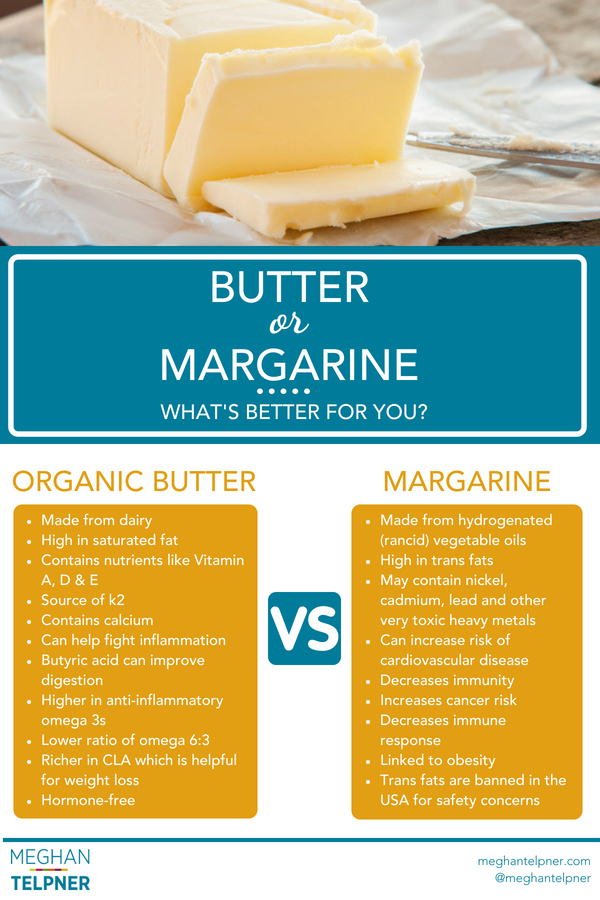 Image: iStock/funkybg
Image: iStock/funkybg




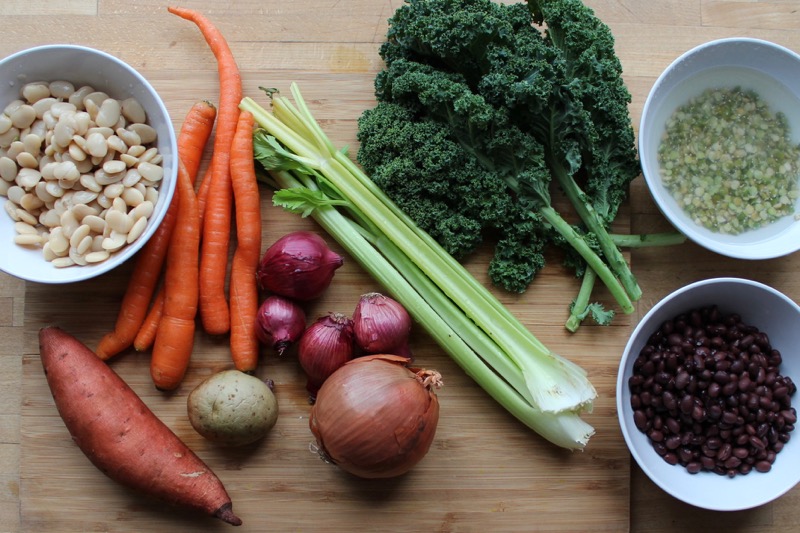
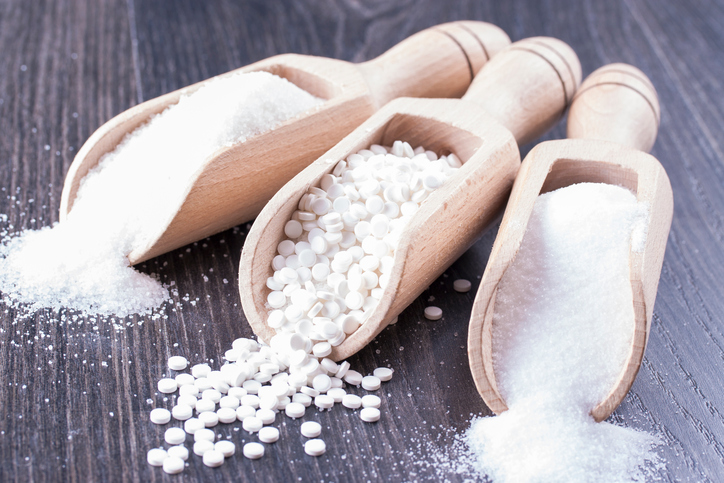
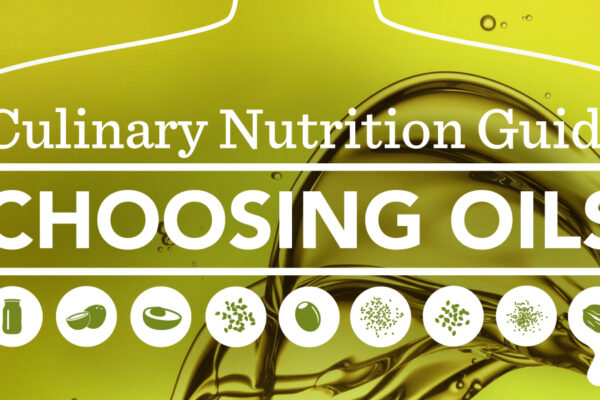
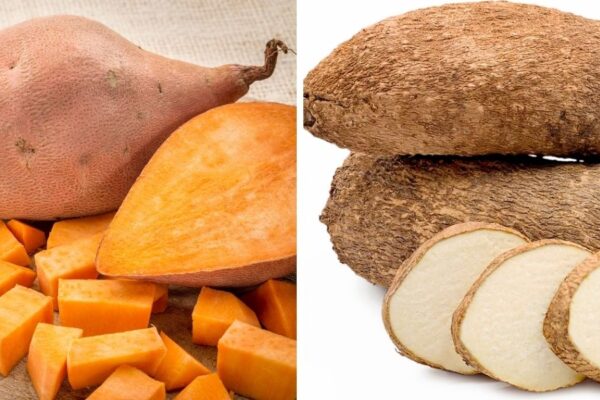
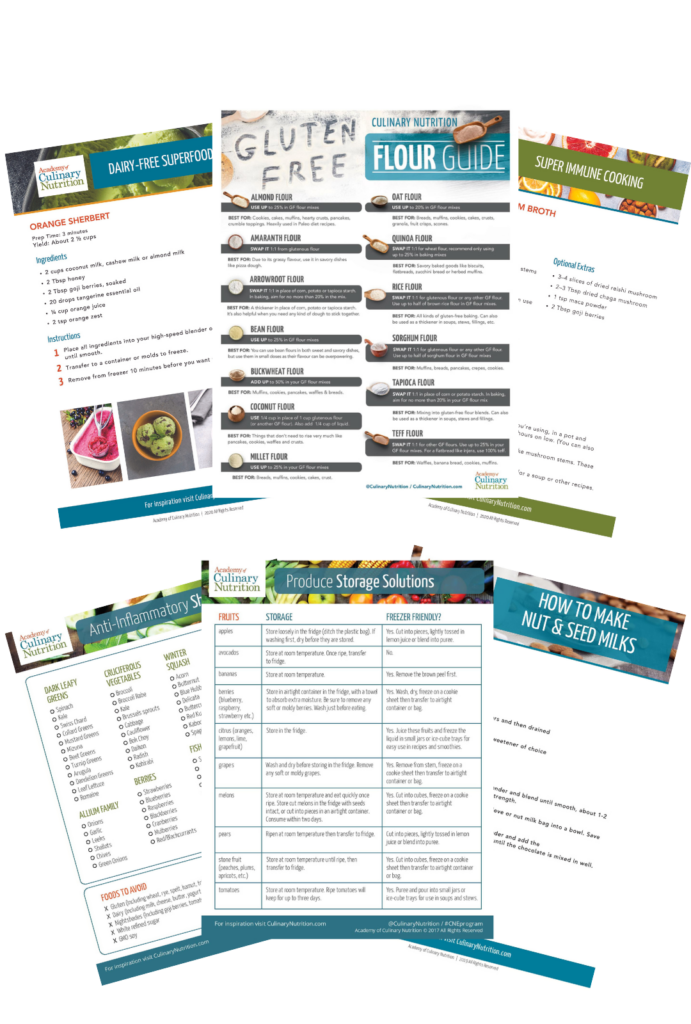
I’m with you through this entire debate. A little bit of butter and a little bit of olive oil make everything better and make dishes that aren’t all that indulgent taste that way.
Also- looking forward to the cholestrol post. My boyfriend’s is high and I chide him about diet but maybe he’s right… genetics? We actually caught a snippet of the debate on filmhttp://vimeo.com/3316573
Thanks for the super informative post. Growing with a Weight Watchers mom we were always using low cal margerine. Having gone vegan I switched to Earth Balance but after reading their ingredients I am guessing it is just as toxic as the regular stuff. Do you have any suggestions of what I can use? I very rarely use the Earth Balance I have but do enjoy it as a treat every once and while on toast or mashed sweet potatoes.
Thanks so much!
Butter isn’t an option in our household, but I also try to avoid margarine. When a little is absolutely needed, I use Earth Balance; but really, for all of my baking and cooking I use various oils.
Margarine is gross…it does taste like plastic if I can recall. I probably haven’t had any in about 6 years! I know people who think that margarine is “healthier” because of the lower calories/fat info on the label, but it doesn’t mean that it is good for you. There are added chemicals and what not added to make it 99% less fat or whatever!
I’d rather have butter which is less processed, made of real milk-making it actually part of a food group! But too bad, I can’t have any dairy products anymore…if I could, butter over margarine for sure. I don’t even have to think about it.
We usually use Earth Balance – if we can’t find it we use butter.
Any opinion on whether Earth Balance is better then butter?
We use butter. We have a butter dish on the counter 24/7. When my husband and I were 1st together we used country crock. It was cheap, spreadable but the taste was off.
I grew up on a dairy farm and we made our own butter from raw milk and I still miss that. I now try to buy local made butter here in New England. After reading your post I think I’ll stop buying Margarine for cooking altogether. I had no idea about the whole hydrogenation process and the metals that are found in margarine and I’m guessing shortening. Thanks! A~
I don’t actually use butter in my own home or in my cooking either. I always use coconut oil as a substitute and as it has similar melting point to butter- works just as all.
As an aside to the calorie factor. I never count calories, but I do know what they mean. And butter and margarine have the same amount. Each and every gram of fat contains 9 calories- whether that fat is animal or plant derived. So if margarine is claiming to be calorie free… what is it made from?
All margarines aren’t created equal! A bunch of people have mentioned the Earth Balance margarine brand, if you buy the organic kind, it’s probably much better for you than eating conventional butter. It’s also considerably lower in sat. fats while using a healthy expeller-pressed blend of natural oils…
I love butter… i don’t over do it cuz hubs has cholesterol issues…he really watches his Sats… but a pat of butter and olive oil just makes everything sautee and taste so RICH.
a little goes a long way and, even though we buy it…hack hack…I DETEST margarine.
( some traditions are hard to break in my home) :)
Thanks Meghan for the comparison!
Butter me please! I enjoyed Grandma Fritzi and the refrigerator room – gee whiz – I’ve missed a lot since only joining you recently on your blog but I’m here to stay and follow..I have lots to learn ;o)
cool
Thanks for the informative post. My mom raised us on margarine too, although she did make the switch to butter some time when I was in high school (better late than never, I hope).
I RARELY use any form of butter, but I do very rarely use a smidgen of Earth Balance (I’m vegan). But regardless of the amount I use, what are your thoughts on Earth Balance and Smart Balance or any similar product. I would assume that the soy free variety is best, but I’d love to hear what you have to say!
Teresa- Thanks for your question. In most cases- soy free is always best. As I mentioned below, I don’t use butter either. I avoid all cow’s milk dairy and did attempt goat milk butter at what point but it was still too goaty for me. Depending on the uses for the Earth Balance, I have been able to substitute all oils with either coconut oil (mostly in baking, frying, on bread), olive oil and flax oil (also great on bread, rice cakes, in wraps etc). A great oil mix you can make that is delicious and comes from Sally Fallon’s Book Nourishing Traditions (a vegan’s nightmare cookbook) is a blend of 1 part olive oil, 1 part flax oil and 1/2 part sesame oil. Delicious and rich in a healthy balance of omega 3’s and 6’s.
I was raised on margarine … because it was healthier, right? Then in my vegan days I used Earth Balance despite its less than tasty flavor. Now I use Kerrygold or OV Pasture Butter to cook with on occasion and use local raw butter to eat uncooked. The flavor, culinary uses and health benefits far outweigh margarine.
Yuck, who wants to eat plastic! But, not to worry margarine is not plastic. “Margarine is one molecule away from plastic” actually comes from an “urban legend” that has been circulating on the Internet since 2003.
Let’s get technical for a moment. Plastic is a polymer, whose ingredients may include polyvinyl chloride, polyethylene, acrylic, silicone, and urethane. Margarine is an emulsion of naturally processed vegetable oil, water, salt, vitamins, and other functional ingredients that ensure the safety and quality of the finished product. Emulsions consist of two or more ingredients that naturally do not remain blended or “in suspension”; and need added ingredients to keep them together; think of it like oil and water. Other types of emulsified foods that you may eat include deli meats and salad dressings.
Living a healthy lifestyle includes eating moderate amounts of the right foods. For example, substituting soft margarine for butter. Margarine has 3 times less saturated fat than butter, not to mention beneficial polyunsaturated fats and Vitamin E. Yes, trans fat in margarine was once an issue but margarine producers have reduced trans fat levels to a miniscule amount comparable to that found in butter. I’ve been working with the National Association of Margarine Manufacturers so I’ve learned a lot about this particular topic. In addition, heart disease runs in my family so I have a personal interest in the subject as well.
Emma, I appreciate your perspective and ultimately believe that everyone has a right to all angles of information and must ultimately make the choice the best suits them. Here afabulous resources on why I opt for butter:
http://www.westonaprice.org/foodfeatures/butter.html
Walnut oil is really nice to use, it’s real buttery tasting so it’s nice drizzled on toast or pancakes, etc.
Great suggestion!
Thank you for this article! I was also raised on margarine and though through the years I head a few unappetizing facts about margarine (but not as many facts as you just provided), I still thought it was healthier than butter. Animal saturated fat is supposed to be bad for you and is butter not full of it? The facts out there are so mixed up and thank you for sorting it out for us!
Now, I don’t think I’ll be able to finish that “tub” in my fridge and I’ll try some oil substitute mentioned in the comments instead. I think my body will thank me for it!
Did you get this image?
I agree with you entire article, but unfortunately some of us cannot tolerate dairy. One acceptable alternative for cooking and baking that is lactose-free is Earth’s Balance spread. I find, for the most part, Earth’s Balance allows me to make recipes that call for butter that I otherwise would not be able to make. Although it is a vegan spread, probably as close to margarine as you are going get, it does allow for people with dairy allergies to cook and bake a far larger variety of recipes.
Love to read your articles and also use your recipes Meghan.
Organic ghee, is made from butter that has all of the milk solids and proteins removed.
I heard that you can make it yourself, do you have the recipe ?
I’ve rejected margarine since I left home in the 1970s. Have been amused at the reversal of dogma. I agree that coconut oil is a fantastic baking option, far better than any tub of anything concocted to resemble butter. I occasionally make buttermilk biscuits with coconut oil that people go nuts for and demand the recipe. I have a question for you: Some people don’t enjoy the taste of the coconut oil (we very much do, whether the items are savory or sweet)– my late mother couldn’t stand it. Do you think the refined coconut oil that no longer has the taste of coconut is a reasonable alternative, healthwise? What do you think about MCT oil, the coconut oil that stays liquid at room temp? Thanks for your time.
Thank you for answering a simple question the whole internet could not.
I love butter and I eat more than I should but, to be fair, margarine has improved a lot from 1970. It is extremely difficult to find a margarine today that DOES contain trans fat. You’ll confirm that all labels say that today. At the end of the day, margarine is much more healthier food. Cheers.